- Householdquotes.co.uk
- Energy Efficiency Grants
Grants for Home Energy Efficiency Measures
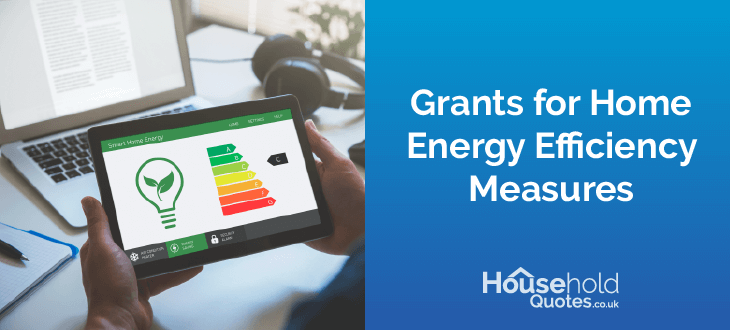
The government’s Energy Review 2010 reaffirms the existing commitment to eliminate “fuel poverty” which is defined as the need to spend more than 10% of a family’s disposable income on energy to maintain a healthy living environment.
To that end, families that can claim certain means-tested benefits may be eligible to receive 100% grants for insulation, lighting or more efficient heating systems. In this guide, we'll take you through the main grants available today, including regional grants from across the UK.
National Grants for Domestic, Community and Business Renewables Projects
ECO4

The Energy Company Obligation, or ECO scheme, was introduced on April 1 2022. This is the fourth iteration of the scheme, known as ECO4, and will be in operation until March 2026.
With a government allocation of £4 billion, distributed over four years, this initiative aims to enhance the energy efficiency of UK homes and mitigate carbon emissions.
ECO4 presents low-income households with the chance to upgrade their inefficient heating systems to more eco-friendly options like improve efficiency measures and low carbon heating systems. Approximately 450,000 homes are expected to be upgraded under ECO4, primarily achieving an EPC band C rating.
Unlike ECO3, ECO4 offers broader eligibility through LA Flex or flexible eligibility, providing more individuals with the opportunity to qualify.
Eligibility Criteria
The ECO4 scheme targets low-income, fuel-poor, and vulnerable households receiving benefits. To qualify, homes must meet specific criteria, including having an inefficient heating system within the D-G energy efficiency band, ownership of the residence (either living in it or in private rented accommodation), and all-electric homes where biomass boilers or District Heat Network are not viable.
Eligibility is also extended to those receiving government benefits. For individuals not currently receiving benefits but falling into the low-income category, ECO4 LA Flex provides flexibility in eligibility criteria determined by local councils, considering factors like age, number of occupants, children, and the house's condition.
To find out if you could be eligible, and about the application process, visit the ECO4 website.
The Boiler Upgrade Scheme

The Boiler Upgrade Scheme (BUS), initiated by the UK Government as part of the Heat and Buildings Strategy, officially commenced on April 1 2022. This £3.9 billion funding program is set to run until 2028.
From October 2023, the grant for air source heat pumps raised to £7,500, up from £5,000, and for ground source heat pumps, it is increased to £7,500 from £6,000. This update was announced as part of the government's Net Zero Strategy Update.
The BUS funding is provided as a fixed grant, available to eligible homeowners in England and Wales. This grant supports the installation of three primary low-carbon heating systems:
To qualify for a BUS grant, property owners in England and Wales need to fulfill a specific criteria:
To find out if you're eligible for a BUS grant, visit the GOV.UK website.
The Smart Export Guarantee (SEG)
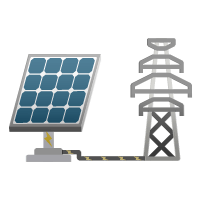
The Smart Export Guarantee (SEG) was introduced on January 2020, succeeding the Feed-in Tariff (FIT) program. This innovative scheme aims to promote small-scale, low-carbon energy generation technologies and encourage homeowners to embrace renewable energy sources.
Under the SEG, energy companies provide tariffs for the renewable energy exported to the National Grid. The SEG encompasses various small-scale, low-carbon energy generation technologies, including solar panels (photovoltaic systems), hydropower, wind power, anaerobic digestion, and micro combined heat and power (CHP).
To qualify for the SEG, homeowners must have an export meter. This ensures accurate measurement of the energy exported to the National Grid.
Local Grants for Renewables Projects
Many local grants are available. We recommend that you check with your local council or library for grant availability in your area.
Warm Nest Wales
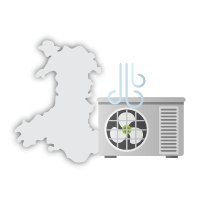
With Warm Nest Wales, you can receive free consultations and enhancements for home energy efficiency, encompassing replacements for boilers and central heating, insulation, and solar panels. The program is available to both homeowners and private sector tenants.
Eligible households in Wales may qualify for free boiler installations, central heating system upgrades, and insulation improvements. Warm Nest Wales adopts a holistic approach, offering personalised packages of energy efficiency improvements at no cost. These enhancements make homes warmer and more energy-efficient.
Find out if you're eligible by visiting the Warm Nest Wales website.
Warmer Homes Scotland
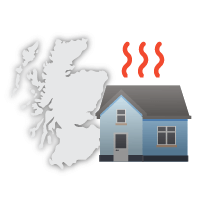
Households across Scotland in reducing bills and minimising environmental impact. Since its launch in 2008, Warmer Homes Scotland has contributed to over £1 billion in energy bill savings and reduced CO2 emissions by over 6 million tonnes.
Warmer Home Scotland government takes on the expenses for energy-saving enhancements for people living in Scotland. This initiative includes personalised home visits to evaluate energy-saving requirements and is open to both homeowners and private sector tenants.
Find out if you're eligible by visiting the Warmer Homes Scotland website.
Affordable Warmth Scheme Northern Ireland
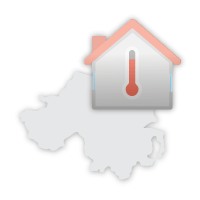
The Affordable Warmth Scheme targets low-income households in Northern Ireland, offering vital support to ensure warmth and energy efficiency. The scheme provides grant aid to enhance energy efficiency measures within eligible homes. This includes improvements such as insulation and heating system upgrades.
The scheme is accessible to residents of Northern Ireland who own and occupy their homes. Private tenants with a total annual gross income below £23,000 may also qualify.
Visit the Affordable Warmth Scheme's website to find out if you're eligible.
Financial assistance for Commercial Renewables Projects
Enhanced Capital Allowance Scheme
Enhanced Capital Allowances (ECAs) enable a business to claim 100% first-year capital allowances on their spending on qualifying plant and machinery. There are three schemes for ECAs:
Businesses can write off the whole of the capital cost of their investment in these technologies against their taxable profits of the period during which they make the investment. This can deliver a helpful cash flow boost and a shortened payback period.
Details of the ECA Low Emission Transport stream can be found at www.hmrc.gov.uk/manuals/camanual/Index.htm
Shell Springboard
Annually awards grants of up to £40,000 for UK businesses who submit the most compelling plans for a product or service which helps combat climate change.
